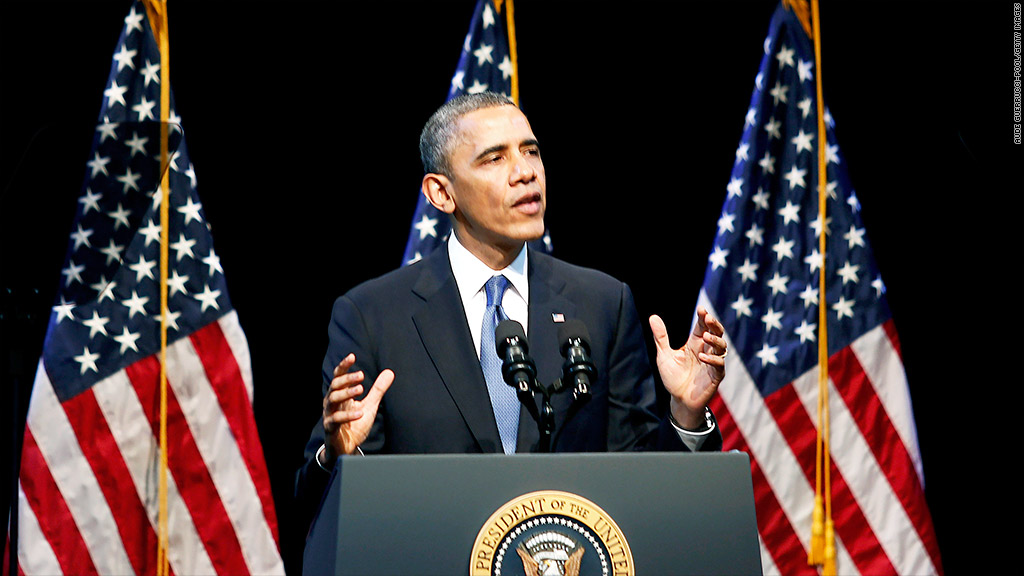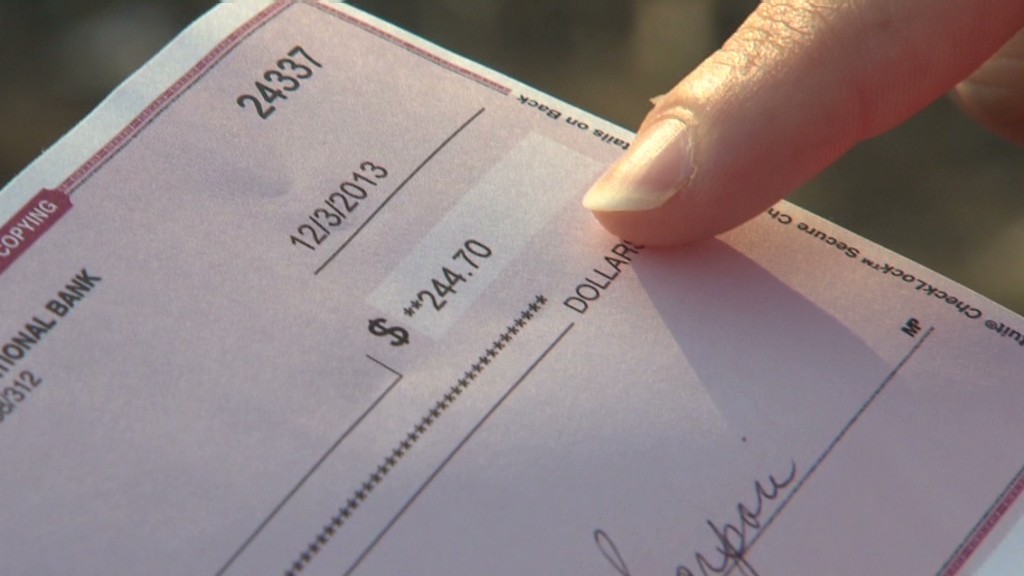
Raising the federal minimum wage could help bring many low-wage workers above the poverty line.
It also could help restore the value of the minimum wage, which hasn't kept pace with inflation over the past 40 years.
But can it really address income inequality?
"It will reduce inequality. The question is how much and for whom. It's not going to have a huge impact, but that's because there's no politically feasible policy that would have a big impact," said poverty and fiscal expert Isabel Sawhill, co-director of the Center on Children and Families at the Brookings Institution.
Consider the 5-figure paycheck of a janitor versus the 8-figure salary of a CEO. Raising the minimum wage to $10.10 from $7.25, as a leading proposal in Congress would do, wouldn't narrow that chasm.
There's also a big gap between those making 6-figures and the bazillionaires at the very top. A higher minimum wage can't touch that.
Then there's the gap between very low-wage and middle-wage workers. It's this gap where advocates say some progress may be made if the minimum wage is raised sufficiently.
At its peak in 1968, the minimum wage was equal to 54% of average hourly earnings in the private sector. Today, it comes in at 36%, according to the Congressional Research Service.
Related: State with highest minimum wage may hike it again
"There are a lot of causes of inequality but [the erosion of the minimum wage] is one of the important ones for inequality at the bottom," Jason Furman, chairman of President Obama's Council of Economic Advisers, said this week.
Obama, who backs the $10.10 proposal, has said raising the minimum wage would be good for the economy and good for families.
A higher minimum wage could increase the pay not only for the 1.6 million workers who earn $7.25 today, but an estimated 17 million workers who make between $7.25 and $10.10.
In selling the idea of a higher minimum, though, advocates also say it could result in raises for hourly workers across the board in what's known as the "ripple" effect.
In other words, employers may want to preserve their relative pay scales, so may raise other hourly workers' pay by an amount commensurate with the minimum wage hike.
That may help the economy and make workers happy. But it likely wouldn't do much to reduce the wage gap.
What would narrow the gap is what's known as "wage compression." That is, employers may try to offset the cost of a minimum wage increase by freezing or reducing the pay of higher income employees.

In any case, hiking the minimum wage won't alter some of the root causes of income inequality.
Sawhill thinks globalization and technology top the list, creating a bigger wage premium for those near the top and stagnating wages at the bottom.
She also cites the U.S. education system, which she says has not kept pace with employer needs, evidenced by the fact that demand for educated workers outstrips the supply.


